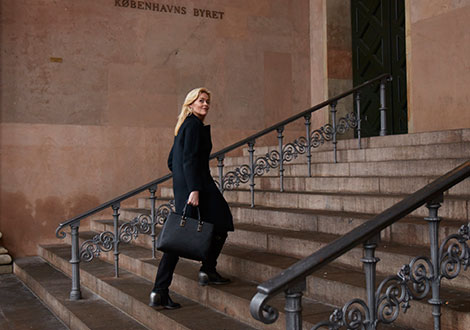
Effective 1 January 2016, new rules on competition and non-solicitation clauses that differ significantly from previous rules, came into force.
By Mette Klingsten
In December 2015, the Danish Parliament adopted a new Act on Employment Clauses, effective 1 January 2016, which applies to all employees. The rules provide the conditions for the conclusion of competition and non-solicitation clauses, as well as combined clauses.
A non-competition clause is an agreement between the employer and employee that, following resignation, the employee may not enter into certain kinds of business nor accept employment in a competing business. A customer clause is an agreement which implies that the employee following resignation may not accept employment or have professional contact with his or her former employer’s customers and other business connections. A combined clause places the employee under the obligation of a non-competition and a non-solicitation clause simultaneously. The term “employment clause” is an umbrella term for these types of clauses.
The new rules
The new rules contain a number of changes compared with previous legislation. The conditions under which an employee is subject to a competitive or non-solicitation clause have been tightened, as have been the new rules increasing the employer’s obligation to pay compensation to the employee.
In relation to non-competition clauses, the employee must hold a very special position of trust to be the subject of a competition clause. And the employer must justify in writing why it is necessary that employee be subject to a non-competition clause.
Regarding non-solicitation clauses, the clause must, among other things, relate only to the clients that the employee has had a personal business relation with during the 12 months before the date of the termination.
A combined clause (meaning a combination of a non-competition and non-solicitation clauses) must satisfy the requirements for both competition and non-solicitation clauses in order to oblige the employee. A combined clause can, at most, commit the employee for six months past the date of termination. Competition and non-solicitation clauses can, however, at a maximum, commit an employee for 12 months after the date of termination.
The Act on Employment Clauses only applies to clauses concluded after 1 January 2016. Companies must be aware of these rules to prevent invalid clauses in contracts.
Non-competition and non-solicitation clauses entered into before 1 January 2016 continue to be valid. Employers, therefore, must be aware of both set of rules.



Thanks to the following contributors to the website: Steen Evald (photograph), Stine Heilmann (photograph), Count Pictures (video), Kunde & Co. A/S (design), WeCode A/S (coding)